What the new National Living Wage will mean for you
- Published
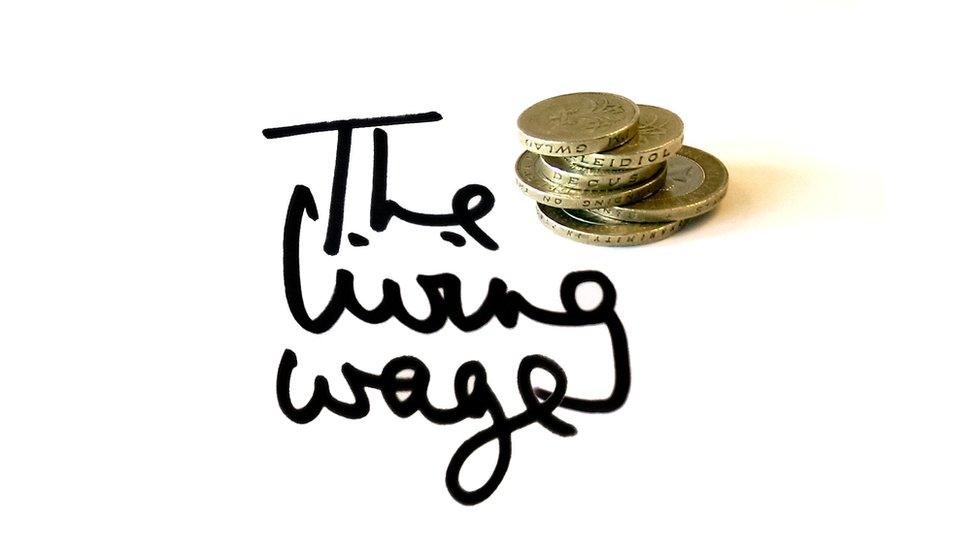
The Living Wage of £9
One of the George Osborne's big surprises in his budget on Wednesday was something called the National Living Wage.
It will start at £7.20 and rise to £9 an hour by 2020, replacing the £6.50 minimum wage.
It could mean a pay rise for millions of people, but critics say it could also cost thousands of jobs.
Here's what you need to know about it.
What is the National Living Wage?
The idea behind it is a wage which is high enough for workers to have a normal standard of living.
That means being able to afford everyday things like food, transport and paying bills.
Groups including charities, churches and The Living Wage Foundation, external have been campaigning for a National Living Wage for a while.
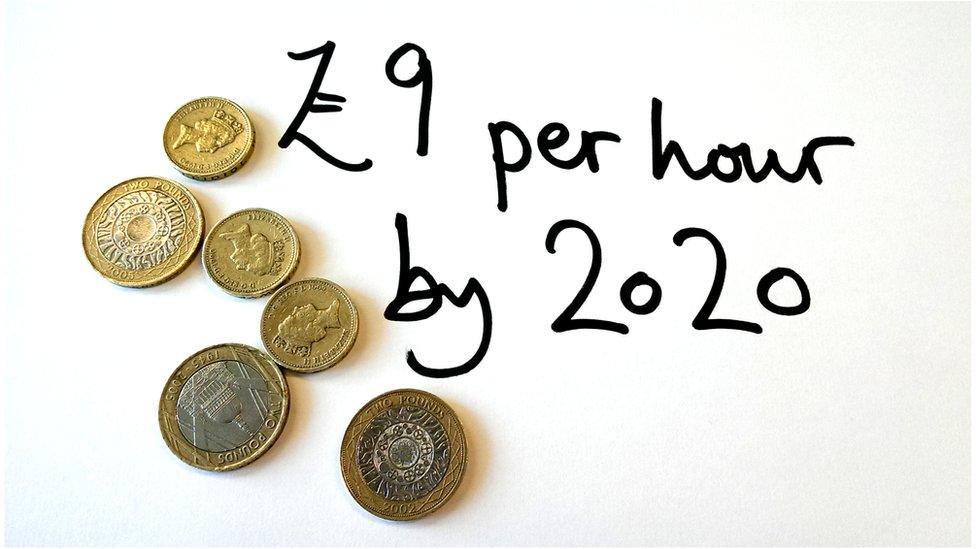
How much is the National Living Wage?
It's being introduced in stages.
It will be £7.20 an hour from next April, with the figure rising to £9 by 2020.
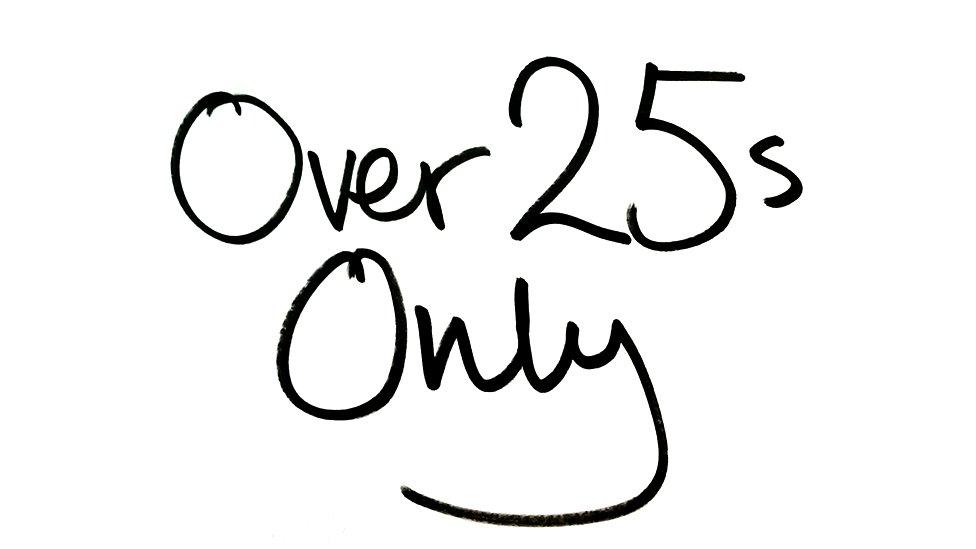
Will it be for all low paid workers?
No, it's only for over-25s.
It will effectively replace the existing minimum wage for them.
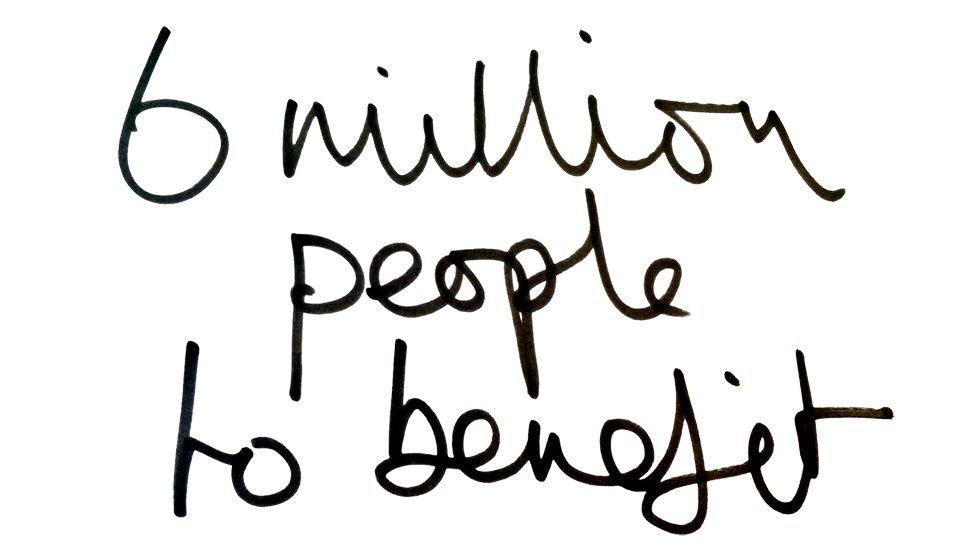
Will I benefit?
If you are over 25 and you're currently on the national minimum wage you'll get 70p an hour more than the current rate and 50p an hour compared to the planned October 2015 increase.
It's expected to boost the wages of six million people.
By 2020, someone aged over 25 working 35 hours a week and previously earning October's minimum wage of £6.70 will see their wages go up by around £4,000 a year.
What happens if I am under 25?
The change won't affect people aged 24 and under currently on the minimum wage.
At the moment, the national minimum wage is £6.50 and applies to everyone aged 21 and over. This will increase to £6.70 from 1 October 2015.
18-20 year olds' current rate will increase by 17 pence to £5.30 per hour.
The rate for 16 to 17 year olds will increase 8p to £3.87 per hour.
Around 1,600 employers have already voluntarily chosen to pay a Living Wage - you can find out who they are here., external
How will the National Living Wage be paid for?
Businesses will be helped to make the changes to wages, George Osborne has said.
Corporation tax is being cut by two per cent to 18 per cent by 2020.
And, employers will be able to reduce the amount of National Insurance contributions (NICs) they pay for their employees by 50% up to £3,000.
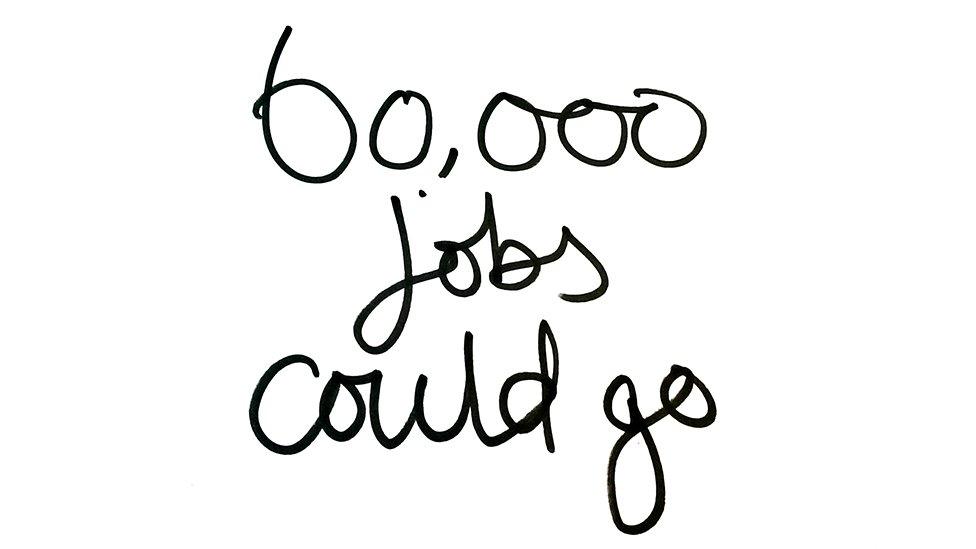
Any other downsides?
The Office for Budget Responsibility, external predicts that 60,000 people will lose their jobs as a result of the changes.
This is partly because they believe it will mean firms recruit more under-25s, who will be on a lower rate.
But George Osborne predicts that 1.1m jobs will be created as a result of the Budget overall, which would outweigh the losses.
Isn't there already a living wage?
Yes, but it's up to employers to decide if they want to pay it or not.
The current Living Wage for London is £9.15 an hour, lower than what the Government says its National Living Wage will be by 2020.
Elsewhere the rate is £7.85 an hour, more than what has been proposed in the Budget.
Gillian Owen, from the Living Wage Foundation, told Newsbeat: "In essence this is a huge pay rise for millions of people and that's fantastic.
"But we don't believe that because you're 24 your bills, your transport, your living expenses are any different to people who're 25."
Follow @BBCNewsbeat, external on Twitter, BBCNewsbeat, external on Instagram, Radio1Newsbeat, external on YouTube and you can now follow BBC_Newsbeat on Snapchat